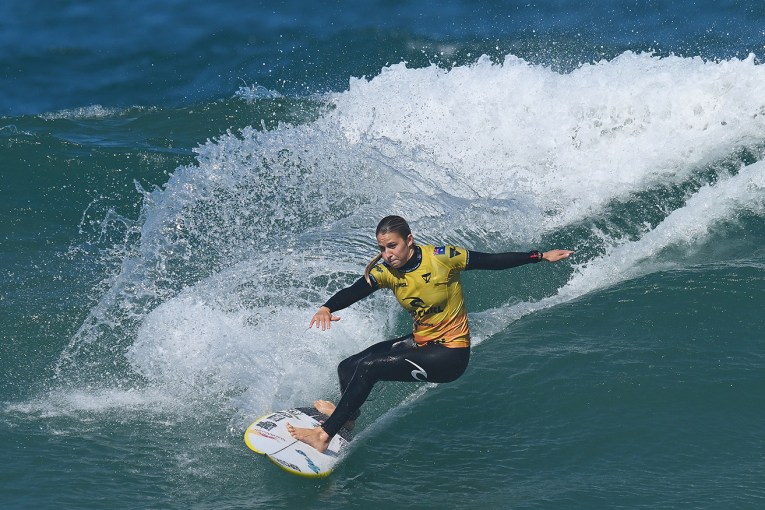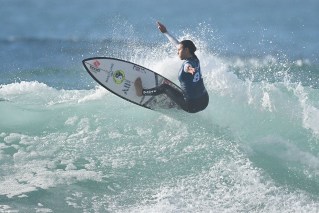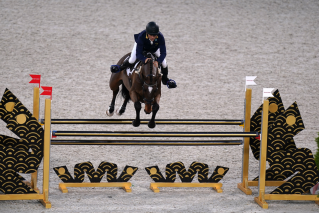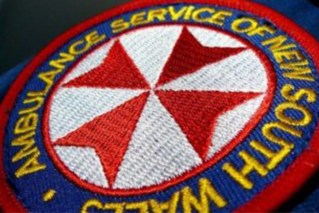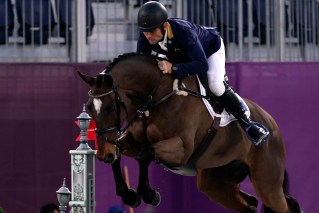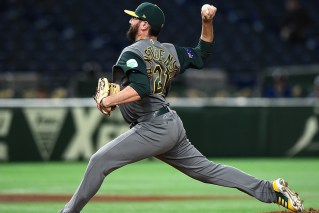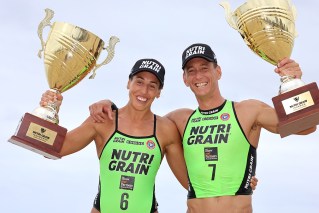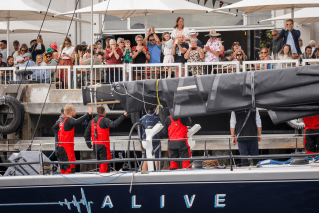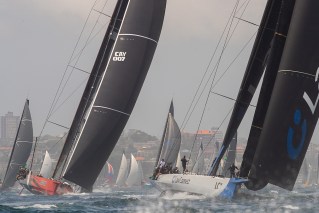This is NOT a sport award

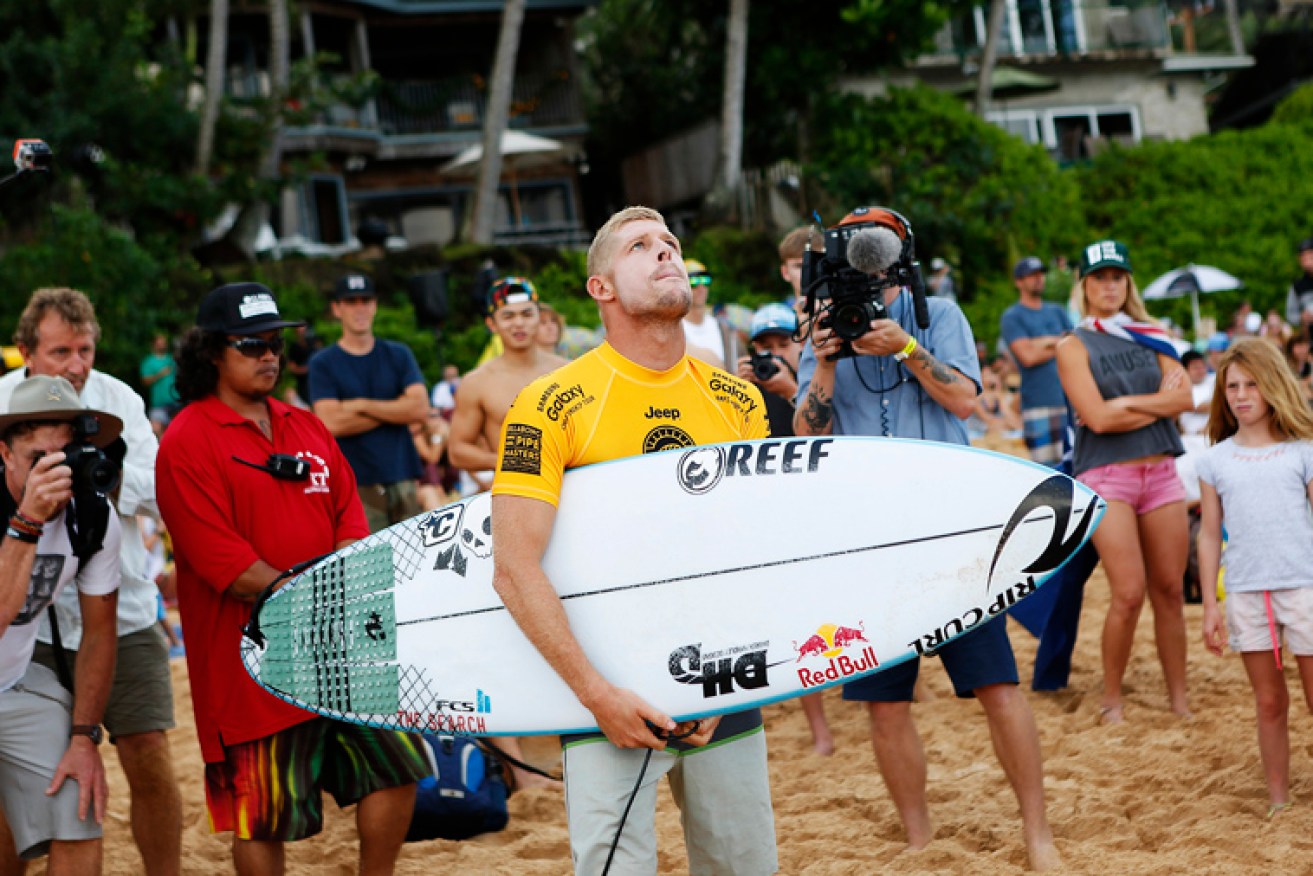
Getty
There’s no shortage of accolades for athletes, but it’s not often an award focuses on their off-field efforts.
Whether it be inspiring a specific group, charity work or just generally showing exemplary character, each of these 10 athletes deserve a pat on the back for what they didn’t get paid for this year.
• Mick Fanning narrowly misses world title
• Would Bradman have made it in T20?
• Video: Hawks star’s outrageous frisbee throw
Mick Fanning, surfer
Why: 2015’s definitive example of showing courage under fire, Mick Fanning has survived an incredibly difficult year in admirable style.
Millions watched the footage of Fanning fending off a shark during the J-Bay Open in July. Next, he donated his $75,000 60 Minutes cheque to an Australian shark attack victim.
Then in December, Fanning helped rescue fellow surfer Evan Geiselman after he was knocked unconscious in a wipeout, and more recently, this week he managed to almost snatch a world title despite having just found out his older brother had died overnight – his second sibling to pass. A truly heroic year.

An enduring and horrifying image – a shark approaches Fanning during the J-Bay Open this year. Photo: Getty
Michelle Payne, Melbourne Cup-winning jockey
Why: This year’s winning Melbourne Cup jockey earned her place on the list with a double whammy.
Not only did a triumphant Michelle Payne tell racing’s sexists to “get stuffed”, she triumphantly presented her brother as proof that people with Down syndrome are often underestimated.
“I think it’s important for those sorts of kids to get a go at something,” she told Seven’s Sunrise.
“Stevie can pretty much do anything, and look after himself when he’s on his own. Just treat them as normal.”

Michelle Payne kisses her brother, strapper Stevie Payne after her historic Melbourne Cup win. Photo: Getty
Dennis Armfield, AFL player
Why: Carlton’s Armfield volunteered at the Odyssey House Drug Treatment and Rehabilitation centre for two years before being offered the role of ambassador.
In 2015, he accepted the prestigious Jim Styne’s Community Leadership Award on Brownlow Medal night.
“I want to help people and I want to help break the stigma around drug and alcohol addiction and get involved in any way I could,” Armfield told Neil Mitchell of his ongoing weekly visits.

The Carlton player took out this year’s Jim Stynes Community Leadership Award. Photo: Twitter
Johnathan Thurston, NRL player, North Queensland Cowboys
Why: The award for inspiring Indigenous Australian athletes is shared by Thurston and the NRL.
When Sydney AFL player Adam Goodes was racially taunted by opposition fans in 2015, AFL heads were criticised for their slow response. Thurston – who works extensively promoting eduction to indigenous youth – suggested an on-field Indigenous dance as a show of support.
“I think on this issue the NRL is far beyond the AFL,” he told The Daily Telegraph. “We need to be supportive of his mental welfare.”

Thurston during a match between the Indigenous All Stars and the NRL All Stars in February. Photo: Getty
Ronda Rousey, MMA fighter
Why: She may have lost the year’s most (over) hyped fight to Holly Holmes in Melbourne last month, but Ronda Rousey has proved one of 2015’s most intriguing athletes.
Not only does the Ultimate Fighting Championship league owe Rousey for bringing it into the mainstream, Rousey calling out Floyd Mayweather for his history of domestic violence and promising she’d nail him in a no-holds barred fight was about as gutsy as it gets.

Rousey knocked out Bethe Correia of Brazi in August this year. Photo: Getty
Serena Williams, tennis champion
Why: Being arguably the most dominant female athlete of all time comes with a lot of responsibility, but one of Williams’ greatest moments came this year after a New York Times article body-shamed her famously powerful physique.
Williams’ response (along with a powerful New York Magazine photo shoot) spoke to all women: “I love that I am a full woman, and I’m strong and I’m powerful and I’m beautiful … I just don’t have time to be brought down. I have Grand Slams to win.”

Williams showed off her incredible strength in New York Magazine in August. Photo: New York Magazine
Bachar Houli, first Muslim AFL player, Richmond Tigers
Why: At a time when Islam is often misunderstood, star Richmond player Bachar Houli remains one of the only devout Muslim athletes for young Australians to look up to.
At an AFL dinner in June, Houli praised the AFL for being a “leading force” in multiculturalism, and thanked Richmond for allowing him to observe traditions such as Ramadan during the season.
“The great thing about Australian society is we’re not tolerating [racism] anymore … If we can change ourselves first, we’ll be better as a community,” he said.

A grinning Houli brings his daughter onto the ground after beating Brisbane in round 18. Photo: Getty
Ellyse Perry, cricket and soccer player
Why: The first Australian to play in both the Cricket and Soccer World Cups, Ellyse Perry is our female sports poster girl.
The beautiful 25-year old was the youngest person ever to represent Australia cricket and has long-running endorsement deals with Adidas and Red Bull.
Although too humble to admit it, Perry has played a big role in the development of female sport, and continues to do so.
“I think across the board girls are getting more opportunities,” she told The Daily Telegraph. That’s the future — it’s going to keep growing.”

Perry bowls against Queensland at the T20 match in Brisbane last year. Photo: Getty
Dylan Alcott, Paralympic athlete
Why: Dylan Alcott is a man about town.
Proving that people with disabilities can enjoy more than an ordinary life, Alcott is often photographed crowd-surfing at music festivals, does regular radio spots and has travelled the world as a wheel chair basketball player (for which he won gold at the Beijing Paralympics) and wheelchair tennis player (for which he won this year’s Australian Open and is currently world no. 1).
On top of everything, Alcott regularly visits and mentors disabled youth, offering himself up as proof that life doesn’t end with a disability.

Alcott channels Lleyton Hewitt in a backwards cap during a match in New York this year. Photo: Getty
Shane Rexhepi, FFA player, Hume City
Why: After suddenly losing his father to cancer in 2014, Hume City vice-captain Shane Rexhepi found a way to make his on-field performance make a difference off-field.
In pledging to donate $200 for every goal scored and match won, Rexhepi inspired Hume City to do the same and ended up raising $20,000 towards finding a cure for the disease that so quickly took his father’s life.
“Raising money for the Cancer Council is a big part of me,” he told Football Australia. “One hundred per cent he’ll be watching from above.”

After a stellar year, Rexhepi said his team Hume City deserved an A-League birth. Photo: Getty

